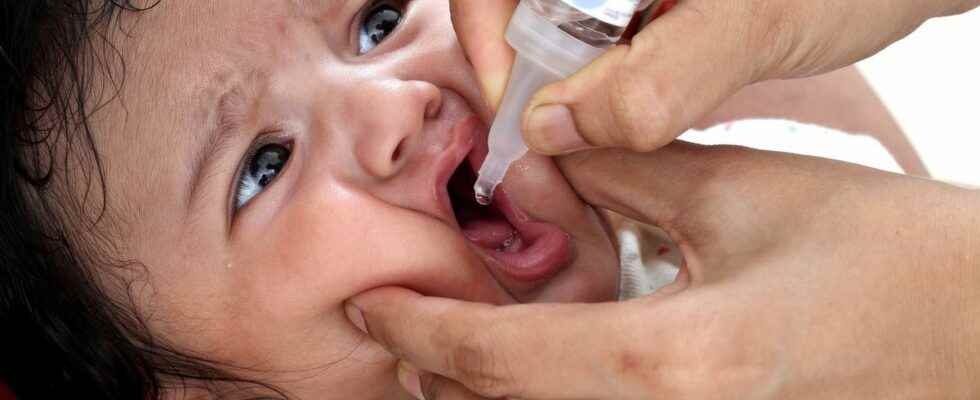Posted ,
Reading 2 mins.
The World Health Organization (WHO) and the British authorities announce that traces of a form of polio, which would be derived from a vaccine strain, have been discovered in the sewage of London. There are no cases of illness to report.
Could this be the return of poliomyelitis? This disease has disappeared from British soil since 1984. However, the WHO and the English health authorities announced on June 22 that they had found traces of this virus in multiple samples of waste water from a wastewater treatment plant. metropolitan London, between February and June 2022.
No cases to report
The WHO emphasizes in its press release that it is “important to note that the virus was isolated only from environmental samples – no associated cases of paralysis were detected”. This is not the first time the virus has been detected in this way, it usually happens one to three times a year. But this is the first time that these “isolates” are “genetically linked” specifies the WHO, which encourages all countries to strengthen their surveillance of the virus.
Poliomyelitis, a crippling disease
Poliovirus causes poliomyelitis, a serious and highly contagious disease that affects the nervous system and can cause permanent paralysis. There are several forms of the virus, the most common being wild poliovirus.
But the traces found here come rather from a circulating poliovirus derived from a vaccine strain. A rarer form, but more frequent in recent years due to the lower vaccination of certain populations.
Remember that the poliovirus is circulating in the wild in two countries, currently Afghanistan and Pakistan.
Vaccine-related detection
After receiving an oral poliomyelitis vaccine, made from an attenuated form of the live poliovirus, the latter can be detected in the stool. The most likely hypothesis would be that an individual recently vaccinated with OPV in another country entered the UK before February.
“These results suggest that there may be localized spread of poliovirus, most likely among people who are not up to date with their polio vaccinations.” said Kathleen O’Reilly, epidemiologist at the London School of Hygiene and Tropical Medicine and polio specialist.
For WHO,any form of poliovirus, wherever found, poses a threat to children everywhere“. The urgency for the UN agency is therefore to “strengthen surveillance“of the virus”in order to quickly detect any new import” and “facilitate rapid response“.
